Local brewers are tackling tariffs one pint at a time
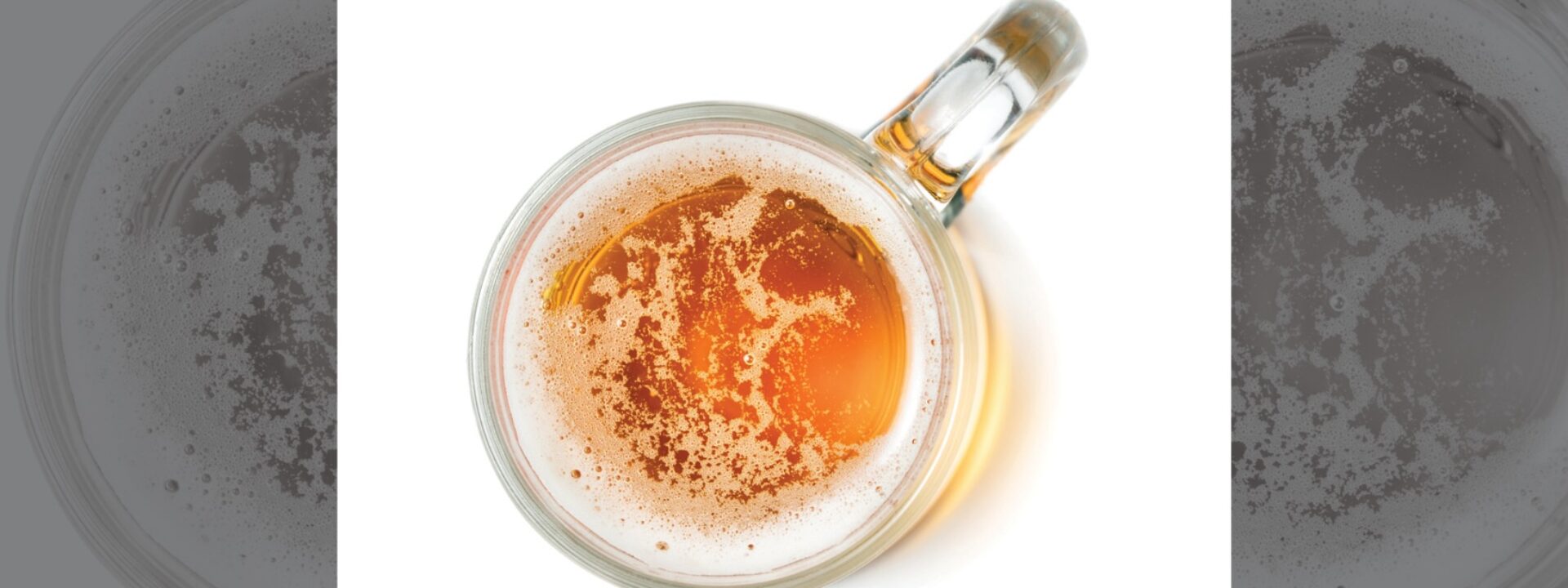
Hamilton and Burlington are home to thriving craft breweries that are taking on the U.S. trade war by doubling down on local.
If there’s one Canadian industry that understands the importance of supporting local, it’s craft brewing.
For more than four decades since the days when Labatt and Molson produced over 97 per cent of all Canadian beer, independent Canadian breweries now number in the hundreds, offering not only a multitude of different beers and ciders, but also serving as important hubs for community.
Hamilton and the surrounding area have long enjoyed a thriving and vibrant craft brewing scene, particularly since the city’s renaissance as the “go-to” place for young professionals, artists, foodies, and entrepreneurs in the 2010s. Still, whether new to the Steel City or born and raised, Hamiltonians by and large have always gone out of their way to support their local businesses, especially their breweries.
In turn, Hamilton’s taprooms have helped strengthen their neighbourhoods and communities, providing what sociologist and author Erik Klinenberg calls “social infrastructure,” serving as vibrant third spaces between home and work where people can meet, hang out, build relationships, and stay connected.
But in 2025, the city (and indeed all of Canada) is contending with new tariff threats from the U.S. under President Donald Trump. As of this writing, Canadians have endured over 60 days of uncertainty and ongoing disruptions to the status quo akin to the start of the COVID-19 pandemic five years ago to the month.
It should come as no surprise then, that “buy local” has become a new rallying cry for Hamiltonians. In this new era, Hamilton’s craft breweries are well-poised to not only adapt to these challenges, but also continue to help Hamilton thrive.
The impacts of tariffs
“The tariff crisis has driven up the cost of essential materials like aluminum and certain specialty ingredients, making it harder to keep our prices accessible for the community,” says Fernando Sequeda, co-founder of Burlington Brewery. “On top of that, supply chain disruptions have created delays that affect our ability to plan and innovate as quickly as we’d like.”
Alex Hamilton of Steel Town Cider adds that “disruptions in our supply chain have slowed down equipment procurement, impacting our expansion plans. Not to mention the overall uncertainty in the economy makes for tightening of consumer spending, directly affecting our taproom sales.”
Aaron Spinney from Merit Brewing notes that the brewery may need to reconsider the prices on cans, noting that “larger keg volumes and draught sales can help with the costs but we need to have cans to help move draught and vice versa. We rely on our taproom as our main point of sale and continue to create high-quality product with a high perceived value to help mitigate the cost.”
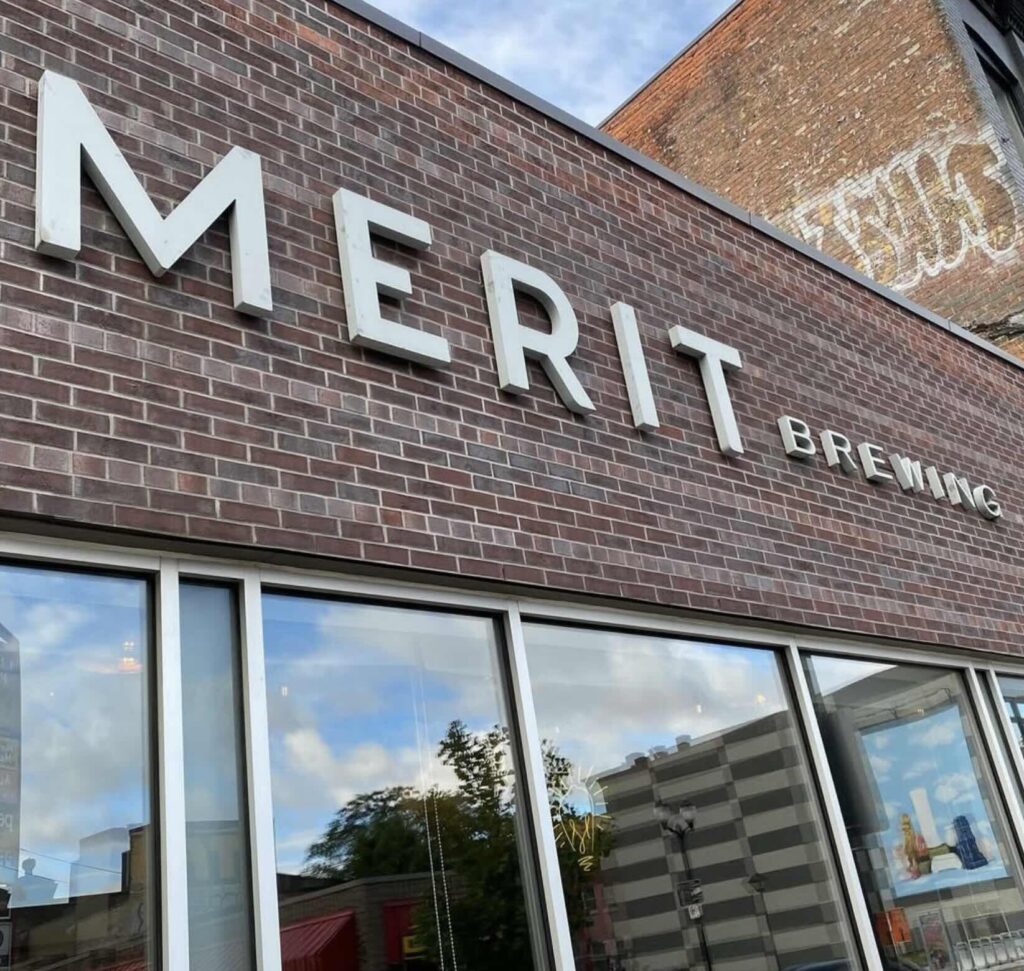
However, Spinney also acknowledges that everything has a ceiling and any tariffs that are added, unfortunately, get passed down to the consumer one way or the other.
“Can sales are a big part of our business,” says Spinney, noting that after COVID, and the rise of the bottle shop and localized sales, cans became the norm and expectation for take-homes. Moreover, with Merit now available in the LCBO, Spinney says that if can sales are King, LCBO cans are also Queen. “The LCBO wants to see packaged products in the 473ml. Cans are a very important part of the product itself and hard to change. Often, commitments are made during the printing and design phase with large minimum amounts that cannot be changed during purchase.” Merit’s price points are already in the luxury product class, meaning it’s hard to continue raising the price per unit in a world where larger breweries are setting the price point at a lower price than smaller producers can afford.
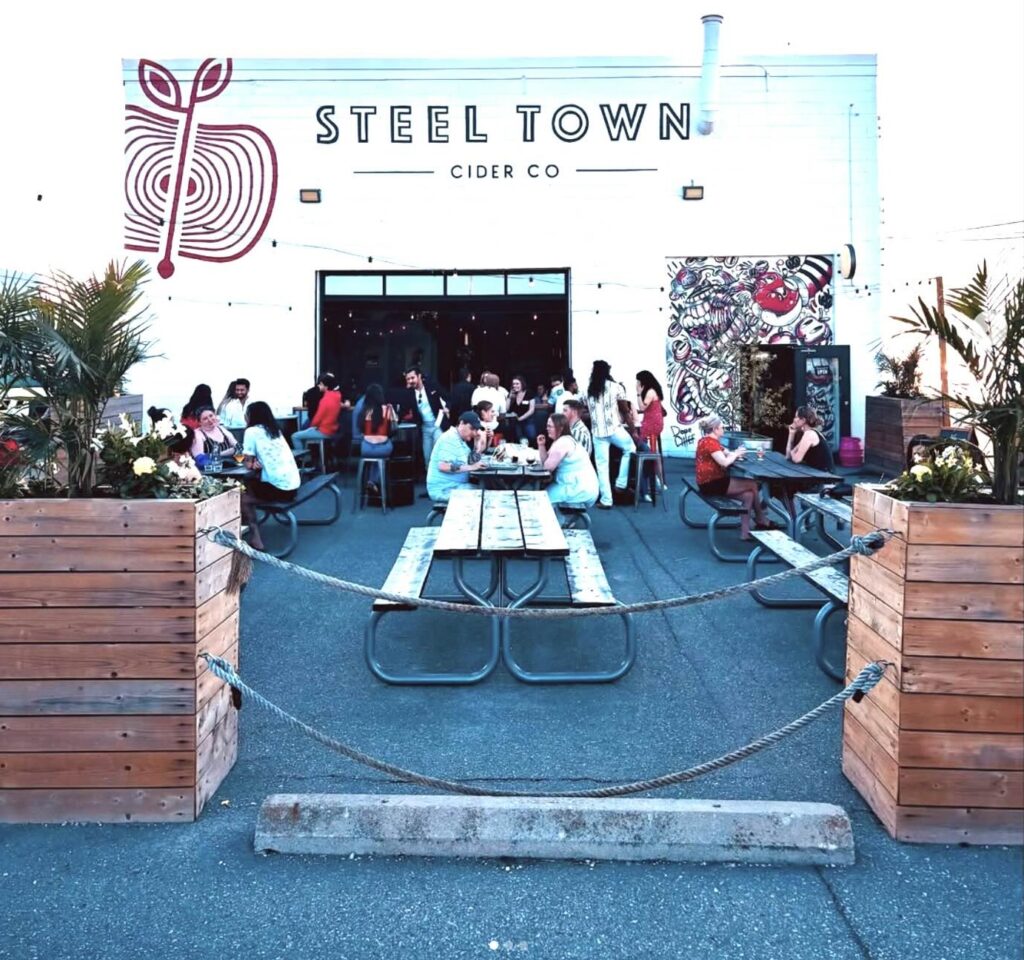
Lessons from the last crisis
Lindsey Mrav knows a thing or two about navigating troubled times.
“COVID changed everything for us,” says Mrav, who, along with her husband Joe, opened Grain & Grit Small Batch Brewing in the city’s west end in 2017. “From our margins to how customers engage with our business – everything. Early on, we were busier than ever and from the outside, it looked like we were thriving.” However, the reality behind the scenes told a different story as the costs for ingredients, materials, and changes in packaging resulting from shifting entirely to retail led to rapidly shrinking margins.
As the restrictions began to lift in 2021, it also became clear that there were some things that were never going to go back to what they had been. “We noticed that consumer habits had shifted,” says Mrav. “People were going out less and spending more cautiously.” Even five years after the pandemic began, Grain & Grit’s business hasn’t fully rebounded to pre-COVID levels. “What we’ve learned is to focus on what works. For example, we leaned into hosting weddings, and that has grown into a major part of our business. We've become more nimble and intentional with where we invest our time and resources.”
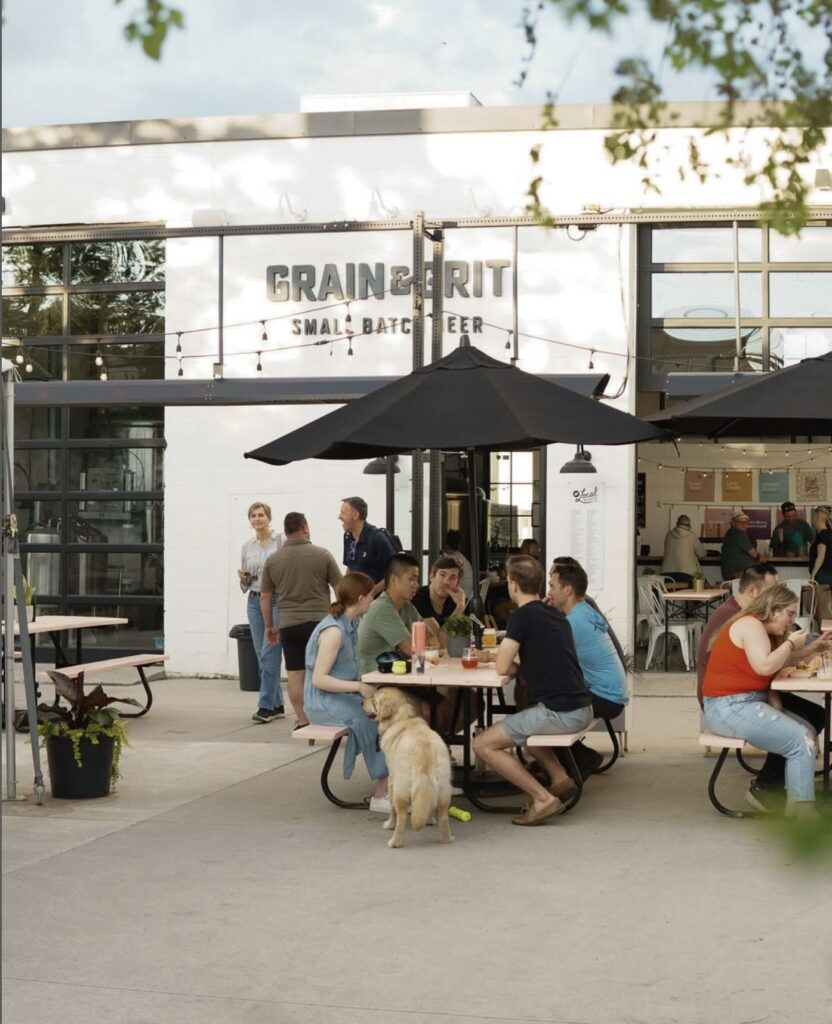
In the face of the tariff war with the U.S., Mrav says they have not yet felt the full impact, but are expecting material costs to go up, particularly on aluminum cans. “We're prepared to pivot quickly, whether that’s switching to new Canadian suppliers or adjusting our pricing if we have to. Luckily, our long-standing focus on sourcing locally puts us in a stronger position, but we’re watching closely, especially with the potential for a recession to affect consumer spending.”
Indeed, for Grain & Grit, “Made in Canada” and “Buy Local” aren’t just trendy slogans. “They’re at the core of who we are. As a community-focused brewery, we've always been committed to supporting local, and that hasn’t changed. We did see a surge in local pride during COVID, and now it feels like that momentum is returning.”
For the love of community and connection
For Barrel Hearts Brewing founder Mark Horsley, sourcing locally has been a mandate from Day One. “We’re currently sourcing over 99 per cent of our ingredients within Canada and looking for ways we can increase that while also increasing the quality of what we do. The few materials we source from outside of Canada are our glass bottles, which come from Germany, and our hops from Europe and New Zealand.”
Indeed, Horsley points out that the beers served at the Dundas brewery need to have glass and not aluminum, which offers some protection from the Trump tariffs on Canadian aluminum and steel. “Our beers can age in five to six years,” says Horsley, “whereas the plastic liner in the can will degrade by that time. You can’t sell a beer that’s there for that long safely. What’s more, these beers really belong with food, and the bottle belongs in those meals. A can with artwork seems out of place in this setting.”
Hailing from Brisbane, Australia, Horsley has been in Canada for 18 years, having lived in Hamilton, Toronto, Jasper, and Vancouver before returning to Hamilton.
Horsley has long loved farmhouse beers like Belgians that are rustic, low-intervention products. “They have this beautiful funk, which is a catch-all for a lot of things, but it’s a flavour that you can’t achieve in any other way than with time. If I’m not seeing the beer that I want around, I decided to make it myself. It’s a niche style. Barrel Heart largely started with my love of brettanomyces, which is a somewhat wild yeast that has been pushed out of modern brewing in favour of beers that are faster, more predictable and easier to produce.”
First opened in an industrial area of Ancaster, Barrel Hearts relocated to Dundas as the charms of the Valley Town revealed themselves to Horsley. “It’s maybe not a young person’s town, but it has hiking trails, the lovely downtown core. It’s a community that has lots of civic pride and a nice place to raise a family. We definitely hit on a need here. Certainly, during COVID, a lot of people left their condos in bigger cities and moved out to have the quiet Dundas life working from home.”
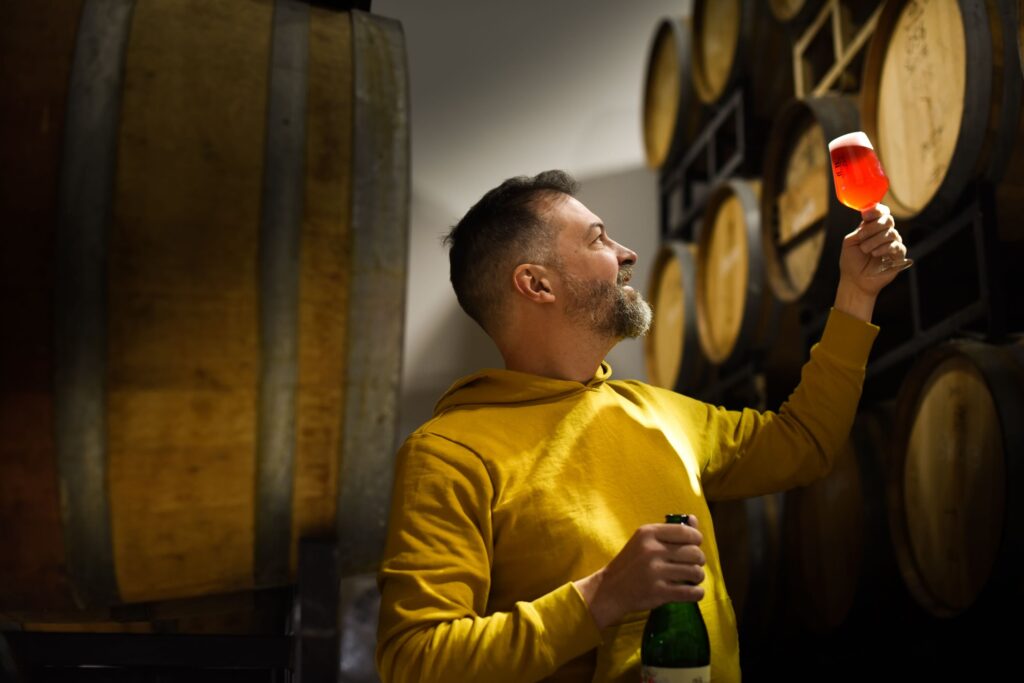
Notably, Dundas, like Ancaster, is also within a short drive of Ontario’s prime farmland, and for Horsley, the current movement towards supporting local is not a major shift from what Barrel Hearts has already been doing since its inception. Together with their use of glass, the focus on local ingredients instead of imports such as mango or passionfruit mitigates some of the impacts.
“We’ve always been hyper-local because that’s where the best quality we can get is. In the summer, I’ll drive down to fruit country and pick up fruits from the roadside farm stand for our beers. I’ll talk to the farmers about what grew well this season – maybe some varieties of blackberries or peaches did better than others – and these little conversations clue me into what I should be using this year. The difference in quality between what the farmer is really proud of and what looks good on a supermarket shelf that came from far away, makes buying local such an obvious choice for the best quality ingredients in our beer. If I can drive somewhere, shake someone’s hand, hear from them how they grew their produce and what’s good this season, I’m getting the best of it.”
Hopes for thriving local futures
As of this writing (late March), U.S. tariffs of 25 per cent on Canadian goods are in effect, including Canadian steel and aluminum, which directly impact jobs in Hamilton, with more slated to take effect in April. Earlier in March, the LCBO pulled U.S. products from its store shelves and online catalogues. A Canadian federal election campaign is also underway with voters going to the polls on April 28. Threats of additional economic hardship and even annexation by the U.S abound. By the time this goes to print, the situation will likely be different, but still uncertain.
Still, regardless of the chaotic backdrop of politics and economics, Hamilton’s craft brewers remain committed to a hopeful and thriving local future. This is especially true for new players such as Aquanova Brewing, who just opened in March on Frid Street close to their Steel Town Cider neighbours, as well as any independent brewery, cidery, or distiller that is still relatively young and needing to grow.
“As immigrants from Venezuela,” says Burlington Brewery’s Sequeda, “buy local means giving back to the country that has given us so many opportunities. It’s about building strong connections with local farmers, artists, and businesses, and creating something that reflects the diversity and creativity of our new home. Every pint we brew carries that spirit of community and a deep love for Canada.”
Sequeda says that Burlington Brewery is doubling down on their commitment to sourcing locally, partnering with Canadian suppliers to bring in high-quality ingredients while reducing reliance on imports. They are also experimenting with sustainable packaging alternatives to offset rising costs. “These changes allow us to stay true to our values while contributing to Canada’s growing craft industry.”
“We are proud of things that are made in Hamilton and by friends,” says Merit Brewing’s Spinney. “Everything we offer is handmade in house and we are proud of that. Everything but the buns as we say, since we are surrounded by so many wonderful bakeries in our area. We want to support others’ hard work. This isn't always easy to do but it’s something we stand behind and are proud to communicate to our customers.”
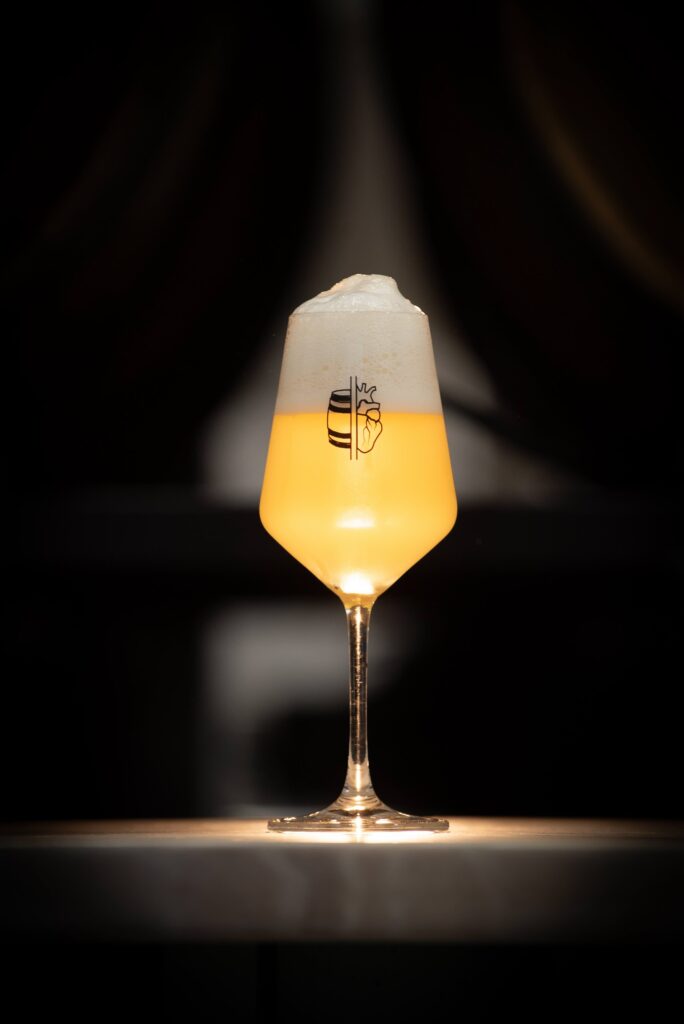
For Steel Town Cider’s Alex Hamilton, buy local is about supporting our community in Hamilton and investing in the regional economy. “It means choosing products that are crafted with local expertise and pride, reinforcing the unique character of Hamilton and its surrounding areas.”
Steeltown will be working to forge stronger ties with local suppliers and exploring alternative packaging options to lessen their reliance on tariff-impacted imports, says Hamilton, and looking into bulk ordering and more strategic planning to help stabilize costs and keep their prices competitive.
“The reality is, buying locally-made products does come at a higher cost,” says Grain & Grit’s Lindsey Mrav, “but the value you get — in terms of quality, community impact, and sustainability – is worth it. We hope people continue to see the importance of supporting businesses close to home.”
Mark Horsley concurs.
“I want to encourage more community here. Barrel Hearts is growing nicely, we have a new kitchen here as well, encouraging more people to eat and drink. Especially when the food and drink is good enough, the troubles slip away to the background. I think making the beers I wanted to see more of in the world, chatting with locals and working with my wife and friends may be about as good as it gets. I don’t know what comes next. We’ll see what the season gives us.”












